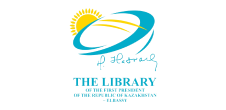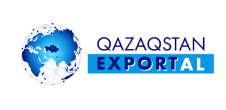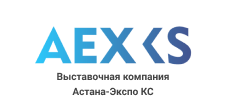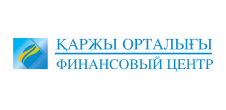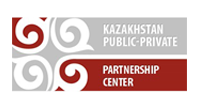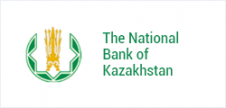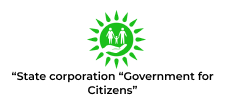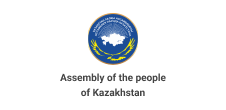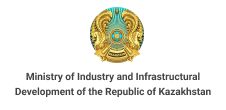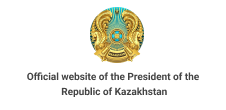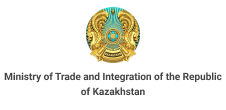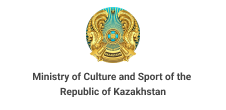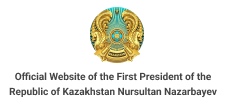Government of the Republic of Kazakhstan: The new Law of the Republic of Kazakhstan on the Return of Illegally Acquired Assets to the State will not affect conscientious investors

On behalf of the President of the Republic of Kazakhstan, MPs of the Mazhilis of the Parliament have developed the Law of the Republic of Kazakhstan on the Return of Illegally Acquired Assets to the State, adopted on July 12, 2023 (the «Law»).
In accordance with the requirements of the legislation of the Republic of Kazakhstan on legal acts, the Law provides for a clear procedure for enactment, according to which certain norms that stipulate measures and methods of voluntarily and compulsorily return of assets have been put into force from September 12, 2023.
At the same time, starting from July 24, 2023, all other provisions of the Law have been put into force, including provisions on monitoring and analyzing information to counter illegal acquisition, withdrawal and return of assets.
The law was developed on the basis of an in-depth examination and application of all modern internationally recognized standards and practices in the field of combating corruption and laundering of property acquired by criminal means, as well as in respect of an analysis of Kazakhstan's own practical experience in return of illegally acquired property, including assets from abroad and interaction with international organizations, courts and other authorities of foreign countries in this regard.
International standards are implemented into the national law of Kazakhstan, taking into account the constitutional and legal provisions and the fundamental foundations of the Kazakhstan legal system and the system of justice.
The law has passed all the necessary expert evaluations and comprehensive discussion with the participation of initiating MPs, state authorities and public experts (economists, lawyers, etc.) on various platforms, in the media and in working groups of the Chambers of Parliament.
On July 11, 2023, the Constitutional Court, having considered the Law and related amendments to legislative acts, certified it to be consistent with the Constitution of the Republic of Kazakhstan.
The Law is available to the public on official Internet portals of legal information.
The purpose and main message of the Law are expressed in the preamble, according to which the Law was adopted in the interests of current and future generations of Kazakhstan citizens and regulates the return of illegally acquired assets to restore the violated rights of the people of Kazakhstan, ensuring the fundamental provisions of the Constitution of Kazakhstan, legality, social justice, sustainable economic and social development of Kazakhstan for the benefit of its people.
In accordance with the requirements of legal certainty, a specific circle of entities has been outlined, with regard to assets the Law applies, as well as definitions of all key terms and legal institutions that are being introduced into the national legislation of Kazakhstan for the first time from international and foreign background.
Thus, the Law defines the concepts of «illegally acquired assets», «assets», «administrative and authoritative resources», «bona fide purchasers», «bona fide creditors», «excess income», etc.
Taking into account the concept of «public officials» already provided for in the Kazakhstan's legislation on counteraction of legitimization of proceeds from crime, top-level officials, including all persons holding positions specified in the Constitution, political civil servants, MPs, judges and other high-ranking civil servants, managers are referred to as the subjects of the Law within the framework of its subject and regulatory purposes in state legal entities and quasi-public sector entities, as well as oligopoly entities affiliated with them, who received assets and income (including excess income) from them through the use of their administrative and authoritative resources, connections and influence.
Taking into account the practice of registration of illegally acquired assets in order to conceal them to various third parties (nominees, relatives, etc.), the scope of such persons is also defined in the Law, as required by current international standards and practice in the field of search and return of illegally withdrawn assets to the affected states.
At the same time, the Law does not provide for the possibility of arbitrary expansion of the subject composition outside the normative framework of subjects and affiliates. Only those entities and affiliated entities that fall under the criteria specifically listed in the Law (including the possession of significant assets) can be included in the register to verify the legality of the sources of origin of assets and the possible filing of a claim for their compulsory return.
The key obligation for entities and their affiliated persons is provided for in Article 2 of the Law - they are obliged to prove the legality of the sources of origin of their assets in court in cases and on the grounds established by this Law.
Accordingly, the Law defines that these «illegally acquired assets» are assets that are subject to return to the state resulting from their recognition as assets of unexplained origin by the court on the grounds provided for by Law (the legality of the sources of origin of which has not been proven to the court).
The asset recovery process, which is outlined in the Law, complies with the fundamental international standards in this area, the most important of which require:
- ensuring that the actions of the state are legitimate, based on strict compliance with the procedures and conditions provided for by law;
- confiscation of assets only on the basis of due process and by court decision;
- transparency for civil society, including in matters of further utilization of confiscated assets for the betterment of the people of the country affected by corruption and the withdrawal of assets.
Within the framework of judicial control, the provisions of the Law provide for procedural rules and standards of substantiation aimed at creating legal certainty and guaranteeing the possibility of each party protecting its rights in an adversarial civil process.
With follow-up amendments, the Civil Procedure Code has been supplemented with a new chapter devoted to the consideration of claims of citizens and organizations to appeal against any unlawful actions of the authorized body for the return of assets in the order of special claim proceedings.
For the purposes of transparency, legality, protection from arbitrary treatment, not only judicial, but also public control of the work of the authorized body for the return of assets is provided.
In particular, consideration of all key issues is provided for at the pre-trial stage, from the formation of the register of subjects to the conclusion of agreements on voluntary return (and the terms of such agreements) or filing lawsuits to the courts on compulsory return - by a commission, which necessarily includes not only representatives of the executive branch, but also MPs, as well as reputable public figures of the country.
The Law provides important guarantees for the protection of the rights of subjects and affiliated persons involved in the process of civil proceedings with respect to the legality of the sources of origin of assets in a separate article. These guarantees strengthen and supplement the existing norms aimed at protecting the rights and legitimate interests of citizens and organizations provided for in the Constitution and laws of the Republic of Kazakhstan.
Unlawful actions of the authorized body that cause damage to individuals entail the property liability of the state. This fundamental rule that is provided for by the Civil Code is clarified and specified in the Law in relation to situations where interim measures are unreasonably imposed on assets.
Finally, in full compliance with international standards in the field of asset recovery, the Kazakhstan Law provides adequate guarantees for the protection of the rights of bona fide purchasers of assets; as well as bona fide creditors, and guarantees for the protection of persons who have reported the facts of illegal acquisition and withdrawal of assets or otherwise assist in asset recovery.
Taking into account the specifics and complexity of the asset recovery process, the accumulated experience of international legal cooperation with foreign partners, special attention is paid to strict compliance with procedural and substantive requirements, as well as requirements and guarantees in the field of human rights protection.
All concluded and existing international legal agreements of Kazakhstan in the field of protection and support of investments with foreign states are equally subject to compliance.
It should be noted that according to the national security legislation, hindering the growth of investment activity, damaging the economic rating of Kazakhstan in the international arena are considered among the main threats to the national security of the country.
The Constitution of Kazakhstan provides and guarantees the inviolability of the private-property rights, as well as the right of everyone to have any legally acquired property in private ownership.
Considering that the work on return of assets is complex, multi-layered, and exacting in nature, involving many entities and assets, often located in different countries of the world, the provisions provided for by the Law complement and strengthen the aforementioned as well as other norms of the Constitution, the Civil Code, other laws and international agreements of the Republic of Kazakhstan.
The Law adopted by the Parliament of Kazakhstan, based on international standards and the experience of developed Western nations with the supremacy of the law, is aimed at restoring social justice and sustainable development of Kazakhstan as a state based on the rule of law and social welfare state, creating a fundamental basis for eliminating conditions conducive to further withdrawal of assets from the country, in strict compliance with the rights guaranteed by the Constitution of Kazakhstan, its international obligations and legislation on national and foreign investors, business entities and individuals.
Thus, the Law is not directed against bona fide investors, including foreign ones. In the absence of other conditions, the availability of assets worth more than 13 million MCI (44.8 billion tenge or 100 million US dollars) shall not be an independent basis for applying the provisions of this Law to bona fide investors.
Source: Official Information Source of the Prime Minister of the Republic of Kazakhstan









